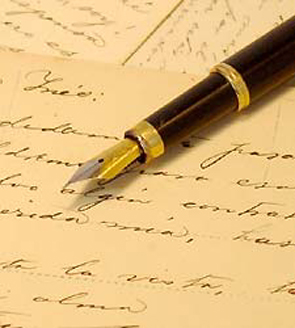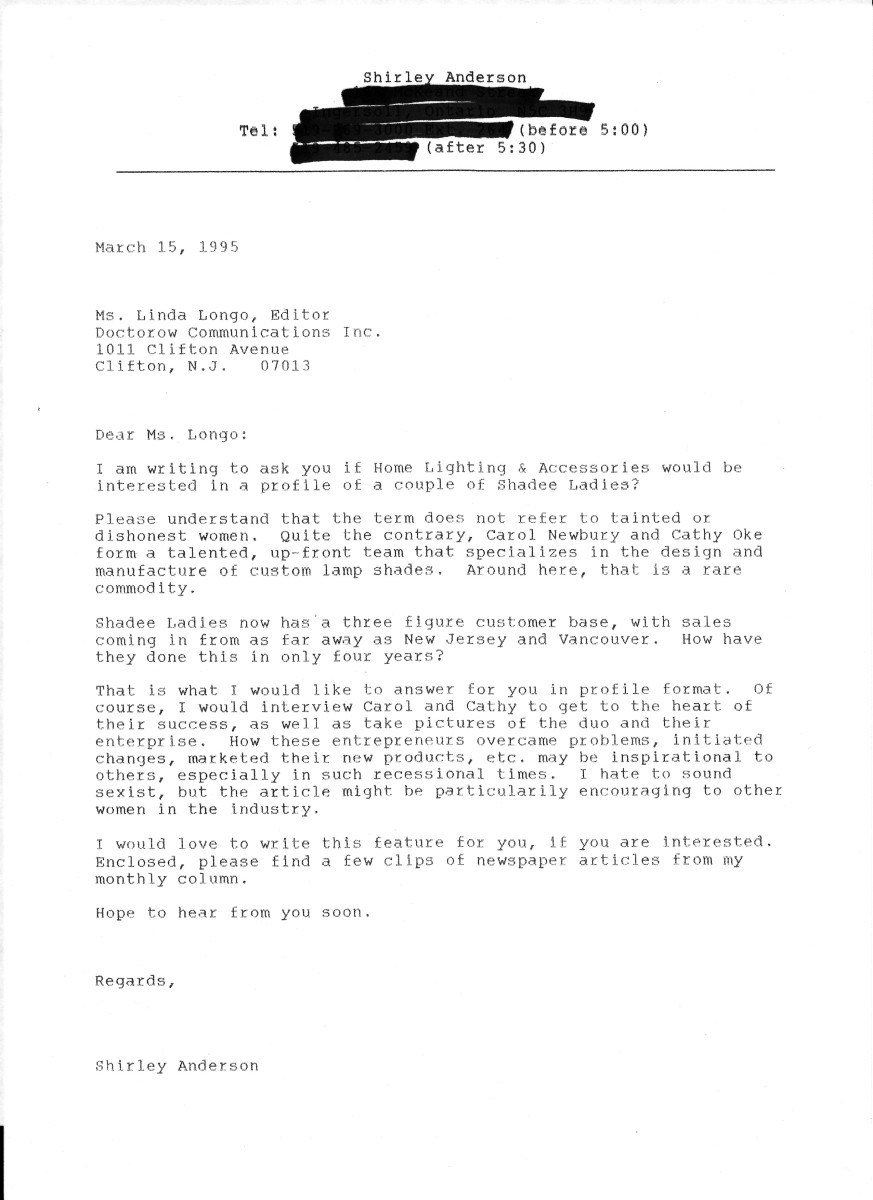Thoughts on Writing and Editing [128]

A WHOLE NEW WORLD
UNLIKE MANY IN HUBLAND, I AM NOT A WRITER, instead, I am an analyst and a businessman. I didn't take up the keyboard (isn't that sad, the pen has been lost to antiquity) until about two years ago, 57 years after I first picked up a pencil. I have to give Hub Pages tons of credit for opening up a whole new world to me. Now, I express myself on politics, science, philosophy, religion, history, and about any thing else that strikes my fancy. Today, it is about writing and editing.
The point I will try to make later, is that the key to great writing is one of two things, raw, in-born talent or a great editor. (I do have an ulterior motive here, btw.) But, first I want to talk about the writer, the author. I will do that by talking about me (I am not really that conceited ... really) and the way I write and then, as the professors you to say, contrast and compare it to others.
Let me begin by saying I know absolutely nothing about professional writing; grade school, high school, and college were bereft of anything beyond the basic English that I had to take; composition courses and the like were shunned like the plague. My actual training in expressing myself came at the hands of a Colonel in the Air Force, when I was in my 30s, and a Senior Executive Service member in the Pentagon when I was in my late 40s; both had no problem turning papers I wrote for them blood red with corrections; it took forever to get anything through them ... the Colonel had a Bachelors in English, wouldn't you know. Over time, my work came back where I could actually see some of the white paper and black letters. These may be strange tutors, but I spent 20 some odd years as a civil servant with the Air Force and DoD; I learned an awful lot from those two very patient men.
I further honed my skills by creating breifing charts, thousands (it seemed) of briefing charts that I or my bosses had to use to get across one message or another, and at pretty high levels in the military to; needless to say, they had to be perfect. Besides the required papers in college, not too many, thank goodness, that is the sum total of "how I learned to write." Then, sometime in 2010, I found hub pages and something let loose inside.
WRITING STYLES

MY STYLE
THE STYLE OF WRITING I have apparently settled on is conversational. I don't know if that is a real style or not, but it seems descriptive of how I like to communicate with you. I feel I write at the personal level, like I am talking to you or a small group of you. Whether or not I am being successful at that is another matter entirely, I have never had any feedback to tell me one way or the other. I didn't choose this way of writing, by the way, it is just what feels right.
Next, I think you will find that I am somewhat like Vice President Joe Biden ... wordy; I just don't know when to stop writing and, as a consequence, end up with three hubs worth of words in one hub. Part of the reason for this is my need to be correct in what I say, and prove it so. Doing that, I am sure, often leads to boredom and/or tears; I think I said I am first and foremost, a numbers guy. Another part of the reason is the result of a lecture I listened to from a professor, presenting for The Teaching Company, who said length is better than brevity, so long as you have something to say with your sentences. He is also the one who introduced me to the wonders of the semicolon; there is so much you can do with that odd, forgotten little mark, as turns out.
Third, I tend to be a bit confrontational, I am generally not one for weasel wording; maybe a better word is direct. Lastly, I write without notes. What you are reading here is, for the most part, the first draft, with some edits (like those last three words, they came a couple of days later). I will go back and try to clean it up and change the phrasing here or there a day or two later, but essentially what gets published is what I wrote the first time. I also write as I think. For example, until I wrote the last sentence and this one, I had no idea this was what I was going to write. Sometimes, of course, it makes no sense, so out comes the delete key. For this piece, I only thought of doing it the day I started writing it, but, for other hubs, I think about it for quite awhile, composing in my head; mainly at night before going to sleep or upon waking. I do it by giving talks to some phantom audience, working out the words and the logic. This iterates several times, honing in on what I really want to say until I just have to put it on screen and then into computer memory. Once I start writing, it sort of flows out. I check to see if the logic looks as good in black and white as it did in my head. If it doesn't, I stare at it and think until something new pops up, then I work with that. And so it goes.
As far as research goes, I rarely do it ahead of time, Wikipedia has made that almost pointless. When I come to a part that I need to substantiate, I stop and go find it, study up on it, and then bring that new found knowledge back into the piece. Often, that may mean taking a break for a while to build charts and graphs, now that I know I need them. Sometimes, however, that may mean changing my whole hub because I found my preconceived notion to be wrong! Case in point - I have always assumed that as a matter of common sense, providing for broad spectrum preventive care saves more in money than it costs ... wrong, it saves lives, but not money, studies have found.
So, that is how I do it, it is certainly efficient, but its effectiveness is still in discussion. I have gone back a reread some of my work and have been horrified at some the errors I found, after having thought I had removed them all.
OTHER STYLES
THIS SECTION WON'T be as long, for I don't know a lot about other styles of writing. But, I do know the main competitor to the way I write is the "practitioner", my word. The practitioner is somebody who does it by the book. They pick there topic and develop a theme. They do their research ahead of time, taking notes on note cards or the electronic equivalent. They write an outline, then develop topic sentences and the like. From there, they fill in the details, pulling in from their research as necessary. Once done, they go back over it, carefully, wordsmith it, grammar checking, looking for nuances they missed, etc. After that, they may go over it again. They have dictionary and thesaurus at hand; they are PREPARED.
That isn't me, I am an INTP, for God's sake, all of the above is a foreign language. Problem is, the chances of me writing a GREAT piece simply doesn't come close to the chances that "They" have of writing a great piece. Another problem is, there are probably a lot writers out there that are closer to my style and there are who are close to "They's" style.
And, this leads me to why I started this hub in the first place ... to talk about the need for Editors.
YOU HAVE A FRIEND IN AN EDITOR

THANK GOODNESS FOR EDITORS
I ABSOLUTELY NEED an editor! Except for those rare few who are simply born with the talent, to be a great writer, I think you must have a good editor. You can be a good writer without one, if you are well-versed in the English language and grammer and have a good sense of yourself; but, rarely a great one. Why is that?
Because, I think, it is that you are a tree standing in a forest of your own making and you need someone looking at the whole forest with fresh, intelligent eyes to find the flaws in your sculpture of words. You need someone who is not emotionally attached to what has been written to critique it, offer suggestions, and fresh perspective; to see if your storyline has gaps or your logic flows properly or that you are reaching your target audience.
That last point has me going back looking for places to rewrite my "A Short History of American Recessions..." hub-book in order to add more clarity for the benefit of the audience I hope to reach and persuade, the non-economist. So, I took advantage of a very nice lady who commented on one of my hubs, KoraleeP, whom I found to be an editor when I read her profile. She has been helping me, for a price, of course, turn my "Short History" into something that is more readable, understandable, and will end up barren of split infinitives. There is no question in my mind it will be well worth the money. I am also hoping she knows how to get the darn thing published.
Koralee has just started giving me advice as she works her way through this rather long "Short History", and I am hanging on every word ... as well as having to reread the several thousand that I wrote. So hopefully, by the time we are done kneading and pulling at this thing, it will be in a presentable form.
That is what an editor, who knows his or her stuff, can do for you. Just as most writers need a muse, they also need an editor.









